Thyroid Function:
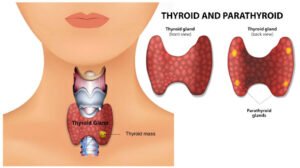

The thyroid gland, a butterfly-shaped organ located at the base of the neck, plays a pivotal role in regulating various metabolic processes within the body. It produces hormones that have far-reaching effects, influencing metabolism, energy production, and overall physiological balance. The primary hormones secreted by the thyroid are thyroxine (T4) and triiodothyronine (T3), which are generated from iodine and tyrosine. These hormones are essential for maintaining proper metabolic rate, heart rate, body temperature, and weight management.
The thyroid’s impact extends beyond mere metabolism; it also affects numerous bodily systems, including the cardiovascular, digestive, and reproductive systems. For instance, an adequate supply of thyroid hormones ensures efficient energy release from the food consumed, while also promoting healthy growth and development throughout life. Disruptions in thyroid function can lead to various health issues, including hypothyroidism, where there is an insufficient production of hormones, and hyperthyroidism, marked by excessive hormone output. Both conditions pose significant health risks and require careful management.
-
PrevalenceWomen are about 10 times more likely to develop thyroid disease than men. About one in eight women will develop a thyroid condition at some point in their lives.
-
CausesMany thyroid disorders are autoimmune, and women are more likely to have autoimmune diseases. The interplay between thyroid hormones and hormones that fluctuate during the menstrual cycle can also contribute to thyroid problems in women.
-
SymptomsSymptoms of thyroid disease in men and women include:
- Fatigue and low energy levels
- Weight gain or difficulty losing weight
- Depression or mood swings
- Heart palpitations
- Increased anxiety
- Muscle weakness
- Hair loss or thinning hair
- Dry skin
- Erectile dysfunction
- Low libido
- Joint and muscle pain, especially in the upper arms and legs
- Fatigue and low energy levels
-
TreatmentTreatments for thyroid disease include:
- Antithyroid medications
- Radioactive iodine ablation or radiation therapy
- Thyroidectomy (thyroid surgery to remove part of the gland)
- Antithyroid medications
The feedback mechanism involving the hypothalamus and the pituitary gland plays a crucial role in regulating thyroid function. The hypothalamus releases thyrotropin-releasing hormone (TRH), which stimulates the anterior pituitary to release thyroid-stimulating hormone (TSH). TSH, in turn, prompts the thyroid to produce T3 and T4. This complex interplay maintains hormonal balance and ensures the body functions optimally. Therefore, understanding the intricacies of thyroid health is vital for maintaining overall wellbeing, as imbalances can lead to a cascade of health problems that affect numerous bodily systems.
Symptoms of Thyroid Disorders in Women and Men
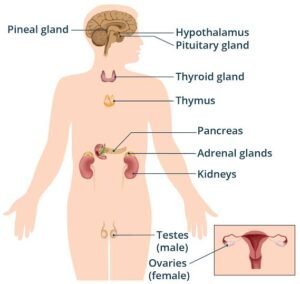
Thyroid disorders, which include both hypothyroidism and hyperthyroidism, manifest through distinct symptoms that can vary significantly between individuals, particularly based on gender. Recognizing these symptoms is crucial for timely intervention and effective management of the condition. Hypothyroidism, characterized by an underactive thyroid, often leads to symptoms such as fatigue, weight gain, and sensitivity to cold.
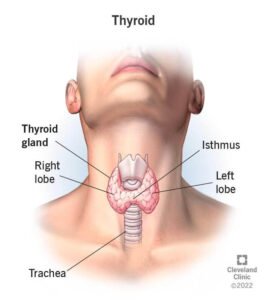
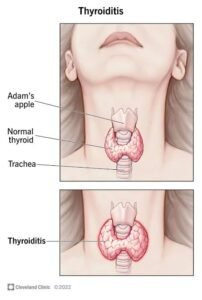
Thyroid disorders are more common in women than men, and can affect both genders in different ways: Additional symptoms unique to women may include irregular menstrual cycles, mood swings, and hair thinning, which can further complicate the clinical picture.
In contrast, hyperthyroidism, characterized by an overactive thyroid, presents with symptoms including rapid weight loss, increased appetite, and heightened anxiety levels. Men may notice symptoms such as muscle weakness, sleep disturbances, and irritability, which can sometimes be mistaken for normal stress or lifestyle issues. Women, on the other hand, may additionally confront symptoms like menstrual irregularities and excessive sweating. It is vital to be aware that the onset of these symptoms can vary with the individual; therefore, generalizations based on gender should be approached with caution.
Common misconceptions about thyroid disorders include the belief that they primarily affect women or that symptoms are merely the result of aging or stress. In reality, thyroid disorders can impact anyone, and symptoms should not be overlooked regardless of age or gender. Early recognition of symptoms allows for more effective management, reducing the risk of complications. Furthermore, a comprehensive understanding of these symptoms can aid both patients and healthcare providers in facilitating appropriate diagnostic and therapeutic interventions.
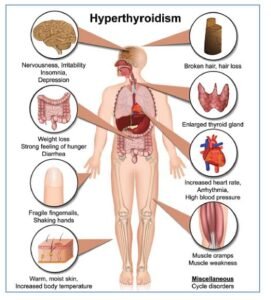
Natural Hormone Therapy for Thyroid Imbalance

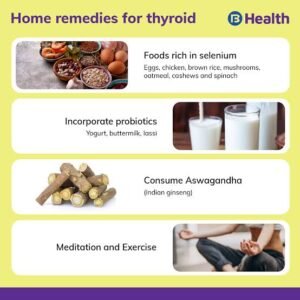
Natural hormone therapy has gained recognition as a viable approach for addressing thyroid imbalance, particularly for those seeking alternatives to conventional treatments. One prominent option within this domain is the use of bioidentical hormones, which are chemically identical to the hormones produced by the human body. These hormones can be derived from natural sources such as plants, making them appealing for individuals concerned about the synthetic chemicals often found in pharmaceuticals.
Bioidentical hormone replacement therapy (BHRT) holds promise for individuals experiencing thyroid dysfunction, including hypothyroidism and hyperthyroidism. Research suggests that restoring hormonal balance through BHRT can lead to improved well-being and quality of life. Patients report experiencing enhanced energy levels, weight stabilization, and mood improvements after undergoing treatment. This aligns with scientific findings that have shown bioidentical hormones can replicate the physiological effects of naturally occurring hormones, thereby addressing not just the symptoms but also the underlying hormonal deficiencies.
However, it is crucial to approach natural hormone therapy with caution. While many individuals experience positive outcomes, the therapy may not be suitable for everyone. Risks may include allergic reactions, hormone imbalances, or other side effects, which necessitate thorough consultation with a healthcare provider. Regular monitoring and adjustments to dosage are important to ensure optimal results without adverse effects. Personal stories abound, illustrating varied responses to natural hormone therapy, emphasizing the need for individualized treatment plans that consider one’s unique health history and requirements.
In conclusion, natural hormone therapy, particularly the use of bioidentical hormones, presents a compelling option for managing thyroid imbalances. While numerous individuals have benefitted from this approach, careful consideration, expert guidance, and continuous evaluation are essential to harness the therapy’s potential while minimizing risks. As research continues to evolve, natural hormone therapy may increasingly play a critical role in the future of thyroid health management.
The Role of Exercise in Thyroid Function

Physical activity plays a crucial role in maintaining and improving thyroid health. Regular exercise is known to influence the production of thyroid hormones, which are essential for regulating metabolism, energy levels, and overall well-being. Individuals with thyroid disorders, such as hypothyroidism or hyperthyroidism, can benefit significantly from incorporating structured exercise into their daily routines.
Engaging in aerobic exercises, such as walking, jogging, swimming, or cycling, has been shown to enhance the function of the thyroid gland. These activities stimulate circulation and increase oxygen intake, supporting thyroid hormone production. Furthermore, exercise helps to balance body weight, improving metabolic function, which is often compromised in individuals with thyroid dysfunction.
Strength training is another effective form of exercise that can serve to mitigate the effects of thyroid disorders. Resistance exercises, such as weight lifting or body-weight workouts, promote muscle mass, which increases basal metabolic rate. This is particularly beneficial for individuals suffering from hypothyroidism, which is commonly associated with weight gain and reduced energy levels. Additionally, strength training can improve insulin sensitivity, further aiding in metabolic processes.

Incorporating flexibility and balance training, such as yoga or pilates, can also be advantageous for thyroid health. These practices reduce stress and promote relaxation, which is vital because chronic stress can negatively impact thyroid function. Activities that promote mindfulness and stress relief can help regulate cortisol levels, a hormone that, when elevated, can inhibit thyroid hormones from functioning effectively.

In conclusion, through regular physical activity, individuals with thyroid disorders can achieve improved hormone balance and enhanced metabolic function. By embracing a well-rounded exercise routine that includes aerobic, strength, and flexibility training, individuals can bolster their overall thyroid health and well-being.
Natural Medicines and Remedies for Thyroid Health

Thyroid health can be significantly influenced by lifestyle choices and the use of natural medicines. Various herbs and supplements have shown promise in supporting thyroid function and maintaining hormonal balance. Among the most commonly used herbs are Ashwagandha, Guggul, and Bladderwrack. Ashwagandha, an adaptogenic herb, has been linked to reducing stress and may enhance the thyroid’s ability to produce hormones. Guggul, derived from the resin of the Commiphora mukul tree, is known for its ability to stimulate thyroid activity and promote weight loss in individuals with hypothyroidism. Bladderwrack, a type of seaweed rich in iodine, is beneficial for those with iodine deficiency, critical for proper thyroid hormone synthesis.
In addition to these herbs, nutritional supplements may also support thyroid health. Nutrients such as selenium, zinc, and vitamin D are essential for optimal thyroid function. Selenium, a powerful antioxidant, helps reduce oxidative stress, while zinc is vital for hormone production. Vitamin D deficiency has been associated with autoimmune thyroid disorders, highlighting the importance of maintaining adequate levels through sunlight exposure and supplementation as necessary.
Integrating these natural remedies into one’s daily routine can enhance thyroid function. It is advisable to consult with a healthcare professional, particularly in the case of existing thyroid conditions, to determine appropriate dosages and prevent interactions with prescribed medications. Consider including these herbs in your diet through teas, capsules, or powders as part of a balanced regimen. Additionally, adopting holistic practices like yoga and mindfulness meditation can help manage stress and promote overall well-being, further supporting thyroid health. Overall, while natural medicines and remedies can play a crucial role in supporting thyroid function, they should be complemented by a comprehensive approach to health and wellness.
Dietary Considerations: Natural Foods for Thyroid Support

Maintaining optimal thyroid health is crucial for overall well-being, and nutrition plays a significant role in supporting thyroid function and metabolism. A well-rounded diet that emphasizes natural foods can potentially enhance thyroid health and alleviate associated symptoms. Central to this dietary approach is the inclusion of specific nutrients known to support thyroid function, including iodine, selenium, zinc, and tyrosine.
Iodine is vital for the synthesis of thyroid hormones. Foods rich in iodine include seaweed, fish, dairy products, and eggs. For individuals with hypothyroidism, it is essential to ensure adequate iodine intake, as deficiency can impair thyroid function. Additionally, selenium acts as an antioxidant and is involved in the conversion of the inactive thyroid hormone (T4) to the active form (T3). Brazil nuts, sunflower seeds, and mushrooms serve as excellent sources of selenium.
Another important nutrient is zinc, which is essential for hormone production and metabolism. Foods high in zinc include meat, shellfish, legumes, nuts, and seeds. Moreover, tyrosine, an amino acid that the body converts into thyroid hormones, can be found in proteins such as chicken, turkey, fish, eggs, and dairy products.
While focusing on foods beneficial for thyroid health, it is equally important to identify and minimize certain dietary components that may hinder thyroid function. For example, soy products have been noted for their potential impact on thyroid hormone production, particularly in those with existing thyroid conditions. Furthermore, excessive consumption of cruciferous vegetables, such as broccoli and kale, may also interfere with thyroid function if consumed raw in large quantities. Therefore, cooking these vegetables can help mitigate their thiocyanate content.
Incorporating a variety of nutrient-dense foods is essential for those with thyroid issues. Meal planning strategies that emphasize balance and moderation will support better nutritional choices, thereby contributing to improved thyroid health and overall wellness.
Thyroid Cancer
Thyroid cancer is a growth of cells that starts in the thyroid. The thyroid is a butterfly-shaped gland located at the base of the neck, just below the Adam’s apple. The thyroid produces hormones that regulate heart rate, blood pressure, body temperature and weight.
Thyroid cancer might not cause any symptoms at first. But as it grows, it can cause signs and symptoms, such as swelling in your neck, voice changes and difficulty swallowing.
Several types of thyroid cancer exist. Most types grow slowly, though some types can be very aggressive. Most thyroid cancers can be cured with treatment.
Thyroid cancer rates seem to be increasing. The increase may be caused by improved imaging technology that allows health care providers to find small thyroid cancers on CT and MRI scans done for other conditions (incidental thyroid cancers). Thyroid cancersfound in this way are usually small cancers that respond well to treatments.
Symptoms
Most thyroid cancers don’t cause any signs or symptoms early in the disease. As thyroid cancer grows, it may cause:
- A lump (nodule) that can be felt through the skin on your neck
- A feeling that close-fitting shirt collars are becoming too tight
- Changes to your voice, including increasing hoarseness
- Difficulty swallowing
- Swollen lymph nodes in your neck
- Pain in your neck and throat
When to see a doctor
If you experience any signs or symptoms that worry you, make an appointment with your health care provider.
Causes
Thyroid cancer happens when cells in the thyroid develop changes in their DNA. A cell’s DNA contains the instructions that tell the cell what to do. The changes, which doctors call mutations, tell the cells to grow and multiply rapidly. The cells go on living when healthy cells would naturally die. The accumulating cells form a mass called a tumor.
The tumor can grow to invade nearby tissue and can spread (metastasize) to the lymph nodes in the neck. Sometimes the cancer cells can spread beyond the neck to the lungs, bones and other parts of the body.
For most thyroid cancers, it’s not clear what causes the DNA changes that cause the cancer.
Types of thyroid cancer
Thyroid cancer is classified into types based on the kinds of cells found in the tumor. Your type is determined when a sample of tissue from your cancer is examined under a microscope. The type of thyroid cancer is considered in determining your treatment and prognosis.
Types of thyroid cancer include:
- Differentiated thyroid cancers. This broad category includes types of thyroid cancer that start in the cells that produce and store thyroid hormones. These cells are called follicular cells. Differentiated thyroid cancers cells appear similar to healthy cells when viewed under a microscope.
- Papillary thyroid cancer. This is the most common type of thyroid cancer. It can happen at any age, but it most often affects people ages 30 to 50. Most papillary thyroid cancers are small and respond well to treatment, even if the cancer cells spread to the lymph nodes in the neck. A small portion of papillary thyroid cancers are aggressive and may grow to involve structures in the neck or spread to other areas of the body.
- Follicular thyroid cancer. This rare type of thyroid cancer usually affects people older than 50. Follicular thyroid cancer cells don’t often spread to the lymph nodes in the neck. But some large and aggressive cancers may spread to other parts of the body. Follicular thyroid cancer most often spreads to the lungs and bones.
- Hurthle cell thyroid cancer. This rare type of thyroid cancer was once considered a type of follicular thyroid cancer. Now it is considered its own type because the cancer cells behave differently and respond to different treatments. Hurthle cell thyroid cancers are aggressive and can grow to involve structures in the neck and spread to other parts of the body.
- Poorly differentiated thyroid cancer.This rare type of thyroid cancer is more aggressive than other differentiated thyroid cancers and often doesn’t respond to the usual treatments.
- Anaplastic thyroid cancer. This rare type of thyroid cancer grows quickly and can be difficult to treat. However, treatments can help slow the progression of the disease. Anaplastic thyroid cancer tends to occur in people older than 60. It can cause severe signs and symptoms, such as neck swelling that worsens very quickly and may lead to difficulty breathing and swallowing.
- Medullary thyroid cancer. This rare type of thyroid cancer begins in thyroid cells called C cells, which produce the hormone calcitonin. Elevated levels of calcitonin in the blood can indicate medullary thyroid cancer at a very early stage. Some medullary thyroid cancersare caused by a gene called RET that’s passed from parents to children. Changes in the RET gene can cause familial medullary thyroid cancer and multiple endocrine neoplasia, type 2. Familial medullary thyroid cancer increases the risk of thyroid cancer. Multiple endocrine neoplasia, type 2, increases the risk of thyroid cancer, adrenal gland cancer and other types of cancers.
- Other rare types. Other very rare types of cancer can start in the thyroid. These include thyroid lymphoma, which begins in the immune system cells of the thyroid, and thyroid sarcoma, which begins in the connective tissue cells of the thyroid.
Recovery Rates According to Age: What to Expect
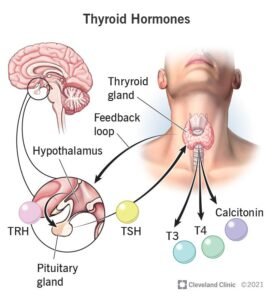
When discussing thyroid health, it is essential to recognize that recovery rates from thyroid disorders can vary significantly according to age. Thyroid disorders, such as hypothyroidism and hyperthyroidism, affect individuals differently based on their age, which consequently impacts the effectiveness of treatments and lifestyle modifications aimed at restoring thyroid balance.
In younger individuals, particularly those in their 20s and 30s, recovery rates tend to be more favorable. This demographic often displays a robust metabolic capacity and a higher propensity to respond positively to both conventional and natural treatments. Younger patients are also more likely to adopt lifestyle changes, such as improved dietary habits and increased physical activity, which can significantly enhance their recovery. Studies show that individuals in this age group may experience noticeable improvements within a few weeks of initiating treatment.
On the contrary, adults in their 40s and 50s may experience more gradual recovery rates. While they may still respond well to treatments, the overall physiological resilience tends to diminish with age. Hormonal fluctuations, lifestyle factors, and the presence of comorbidities can complicate their thyroid health and recovery process. This demographic may require more time to observe significant improvements, with some reporting satisfactory results after several months of consistent adherence to treatment and lifestyle adjustments.
For older adults, specifically those over 60, recovery from thyroid disorders can be more complex. Age-related changes in metabolism and the potential for existing health concerns may lead to slower recovery rates. Additionally, older patients might face challenges in maintaining the necessary lifestyle changes due to mobility issues or other age-related factors. It is not uncommon for this group to experience prolonged treatment periods that necessitate regular longitudinal assessments to ensure effective management of thyroid health.
Preventative Measures to Avoid Thyroid Disease
Thyroid health plays a crucial role in overall well-being, and adopting preventative measures can significantly reduce the risk of thyroid disease. Lifestyle modifications, including regular physical activity and maintaining a healthy weight, are essential. Engaging in at least 150 minutes of moderate aerobic exercise each week can improve metabolic health and support proper thyroid function. Moreover, incorporating strength-training exercises on two or more days per week can help enhance muscle mass and improve hormone regulation.
Dietary choices also play a vital part in preventing thyroid disorders. A balanced diet rich in fruits, vegetables, whole grains, lean proteins, and healthy fats is recommended. Crucial nutrients such as iodine, selenium, and zinc should be included, as deficiencies in these can negatively impact thyroid hormone production. Foods like fish, dairy products, nuts, seeds, and iodized salt can help fulfill these nutritional needs. It is also important to limit the intake of goitrogens—substances found in certain raw vegetables, soy, and processed foods—that can interfere with thyroid function. Cooking these foods often inactivates goitrogens, making them safer for consumption.
Regular health screenings are another important strategy in preventing thyroid disease. Routine check-ups with a healthcare provider can assist in monitoring TSH (Thyroid-Stimulating Hormone) levels and evaluating overall thyroid health. Individuals with a family history of thyroid disease should be especially proactive about screening, as genetics can contribute to the likelihood of developing thyroid disorders. Increased awareness and understanding of personal risk factors allow for earlier intervention and management, reducing the incidence of thyroid-related issues.
Conclusion: Embracing a Holistic Approach to Thyroid Health
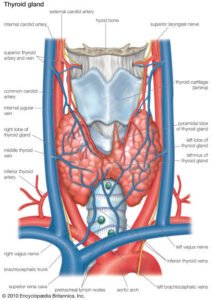

In the journey towards understanding thyroid health, it is essential to focus on a holistic approach that addresses both the physiological and lifestyle factors that influence this vital gland. Thyroid dysfunction can significantly affect overall well-being, making it crucial for individuals to remain informed about their thyroid health. Through lifestyle modifications, dietary adjustments, and integrating natural remedies, one can foster a balance that supports optimal thyroid function.
One of the key takeaways from this discussion is the importance of personalized care. Each individual’s experience with thyroid health can differ greatly; hence, what works for one might not yield the same results for another. Therefore, it is advisable to consult with healthcare professionals who are knowledgeable about thyroid issues and can provide tailored advice based on individual circumstances. This personalized approach enhances the effectiveness of any management strategy aimed at restoring balance to thyroid health.
Moreover, understanding the interconnectedness of various lifestyle factors—such as stress management, regular physical activity, and adequate sleep—can significantly bolster one’s ability to maintain thyroid health. Engaging in stress-reduction techniques, such as mindfulness or yoga, could prove beneficial in mitigating symptoms associated with thyroid dysfunction. Additionally, a nutrient-rich diet featuring essential vitamins and minerals supports healthy thyroid function by providing the body with necessary building blocks.
In conclusion, by embracing a holistic approach and prioritizing informed decision-making, individuals can take proactive steps toward achieving better thyroid health. Awareness and active participation in one’s health are vital components of any effective management plan. Hence, everyone is encouraged to stay informed and seek professional guidance on their journey to thyroid balance and recovery.


